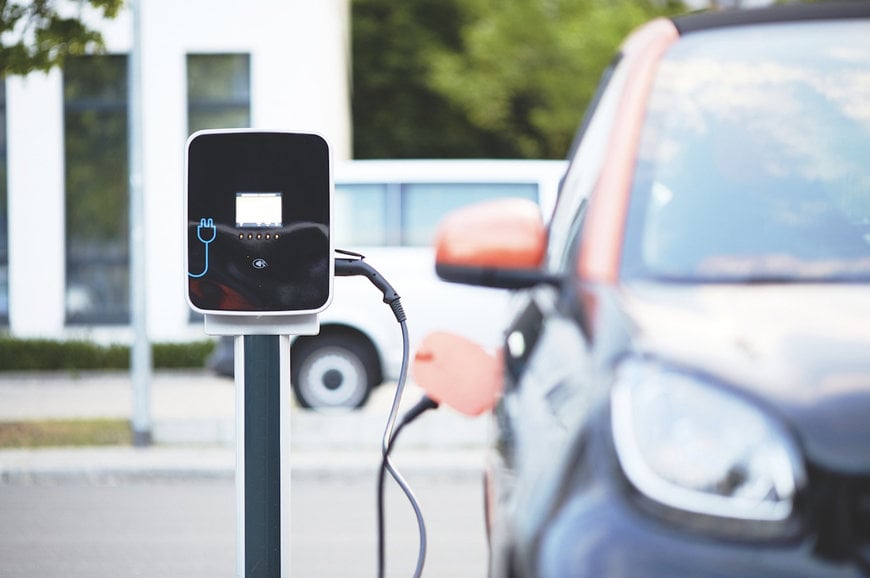How connector technology is powering the electric vehicle boom
By Dawn Rogers, senior product manager at connector specialist PEI-Genesis, explores how connectors are powering the EV development.
www.peigenesis.com

The IEA’s latest Global EV Outlook report reveals a surge in electric car sales, projected to reach a staggering 17 million units by the end of 2024. This marks a significant milestone in the automotive industry, as EVs are expected to constitute more than one in five cars sold worldwide. As the EV market accelerates, the critical role of advanced connector technology in sustaining this growth becomes increasingly evident.
The technology at the heart of an electric vehicle allows it to efficiently manage and distribute power. This functionality is heavily reliant on the quality and performance of its connectors. Connectors in EVs are not just simple links; they are sophisticated components that must meet stringent requirements to ensure optimal performance and safety.
As the demand for EVs grows, driven by both stringent environmental regulations and consumer interest in sustainable mobility, the need for robust, high-performance connectors becomes paramount.
Key requirements for EV connectors
When it comes to EV connectors, they must handle high current loads to support fast charging and high-power applications. High current loads generate significant heat, which can lead to overheating and potential failure of the connector if not properly managed.
Connector manufacturers need to use materials with high electrical conductivity, such as copper or silver alloys to minimise resistance and heat generation. They also need to incorporate design features, such as robust contact interfaces and low contact resistance to support high current flow without significant energy loss.
Similarly, connectors must facilitate minimal power loss and ensure efficient transmission of electricity from the battery to various components of the vehicle. Power losses during transmission can reduce the overall efficiency of the vehicle and decrease its range. In this case, connectors need to be designed with low contact resistance and incorporate thermal management features to dissipate heat effectively and maintain optimal operating temperatures.
Ensuring proper electrical insulation is also crucial for connectors in EVs to prevent short circuits, electrical arcing, and other electrical failures. Connectors need to be made from high-grade thermoplastic materials, such as Polyethylene (PE) or Polytetrafluoroethylene (PTFE) that can withstand high voltages and harsh conditions.
They also need to incorporate design features that provide physical barriers between conductive parts to prevent accidental contact and arcing. At the same time, they must be compliant with stringent safety standards and certifications, such as IEC 61851-1, IEC 61851-23, and IEC 62196 that regulate electrical requirements.
Connectors must also be able to adapt to the harsh conditions that the EV is exposed to. This would include working with extreme temperatures, moisture, dust, and vibrations, whilst not compromising performance. At the same time, they must be compliant with different environmental regulations, such as REACH and RoHS.
Supporting the EV revolution
Advanced connector technologies enable efficient power management, crucial for maximising the range and efficiency of EVs. One of the standout solutions in the market addressing these stringent requirements is Amphenol's SurLok Plus line of connectors. These connectors are specifically designed to enhance the performance, reliability, and safety of electric vehicles.
SurLok Plus connectors are used mainly in the battery pack of EVs and have a small footprint to allow easier system integration. The 1500 V range has been specifically designed for EV applications being developed in the market. These connectors are also IP67 rated (mated) to ensure protection against dust and water and have a unique integral latching system, which always ensures electrical and mechanical connection.
As we look forward to a greener and more electrified future, the importance of advanced connector technologies cannot be overstated. They are the unsung heroes enabling the electric vehicle revolution, ensuring that the transition to a cleaner, more sustainable mode of transportation is not only possible but practical and reliable.
www.peigenesis.com

